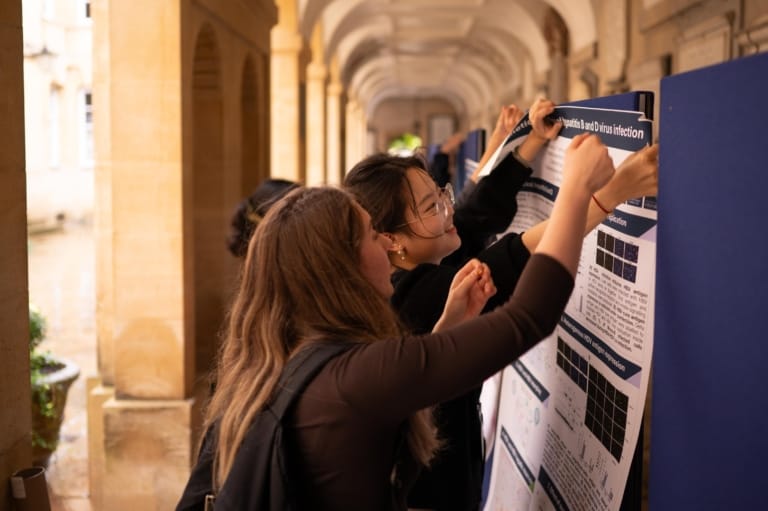Former Lister Prize Fellow, Prof. Dan Davis, has written a popular-level book about immunology, entitled The Compatibility Gene (published by Penguin books). The book is, in brief, about our immune system genes – the story of how these genes work alongside biographies of those who did the research. The book argues that much of who and what we are has come from the way our species has evolved to survive disease. Prof. Davis and his wife have discussed the book recently on BBC Breakfast TV and the book has received fantastic reviews in The Times, The Guardian, Nature and New Statesman, amongst other places.
Details about the book are available on Amazon here: http://www.amazon.co.uk/The-Compatibility-Gene-Daniel-Davis/dp/1846145147
Watch Prof. Davis and his wife on BBC Breakfast here: http://www.bbc.co.uk/programmes/p01frq07
REVIEW of The Compatibility Gene IN THE TIMES:
http://www.thetimes.co.uk/tto/arts/books/non-fiction/article3841160.ece
From war wounds to the mysteries of pre-eclampsia, Davis examines the discovery and significance of compatibility genes.
“Nobody writes poems about kidneys,” Daniel M. Davis states bluntly, putting in a nutshell why the first heart transplant garnered a frenzy of attention in 1967, despite the first transplanted kidney having been plumbed in over a decade before. The heart simply seems so personal, so vital. Yet it is the concept of uniqueness that lay at the core of the struggle to achieve successful transplantation. For years, scientists had been attempting to understand how the body recognises alien tissue, and why it goes in for the kill — questions that began to probe deep into the secrets of the immune system.

Taking us on a journey that begins with war wounds and winds up with the mysteries of pre-eclampsia, Davis examines the discovery and significance of compatibility genes — genes that quite simply label you as you. Indeed, according to Davis, trawling through a database featuring 18 million people’s compatibility genes, chances are that only a small roomful of folk would share the same combination as you. You may even be one of more than a million in the system justified in singing Chesney Hawkes’ s The One and Only— as the only one on the list with that particular selection.
Boasting an astonishing diversity, they are key to making sure your body’s immune system can distinguish your own cells from other entities. Yet they are far from a one-trick pony, as Davis reveals through their suggested link to properties as diverse as vision, learning and even sexual attraction. Oh yes, some experiments point to the possibility that our noses can pick up on differences in compatibility genes, helping us to choose that special someone for factors other than culinary skills and a passion for Star Wars.
Beginning with a giant of immunology, Peter Medawar, Davis weaves a warm biographical thread through his tale of scientific discovery, revealing the drive and passion of those in the vanguard of research.
Many of the early concepts tackled are fairly familiar but Davis’s readable narrative allows them to be seen afresh through the eyes of those who first probed such puzzles as the existence of blood groups or the very nature of disease. However, on exploring more recent research, Davis ups the pace. At the outset he is careful to offer recaps along the way, helping one to keep up with the twists and turns of unusual results, astonishing implications and ethical dilemmas (the tricky definition of “brain death” among them), but as he delves deeper, these moments become ever more essential. Acronyms abound, personality sketches become briefer and all the while the concepts and experiments stray farther from familiar turf. Plug on however and there are plenty of rewarding moments, from glimpses of a future with tailored drugs to an epilogue with a very personal touch.
Explanations of the role of compatibility genes become more complex and tangled as the pages turn. Pervading a multitude of functions, their influence is almost overwhelming — so it is a comfort that the scientists themselves seem daunted at times. Perhaps, rather than hope for a simple answer to the role of these enigmatic genes it is best to do as one of Davis’s heroes advocates: “Breathe it all in, embrace the complexity”.



